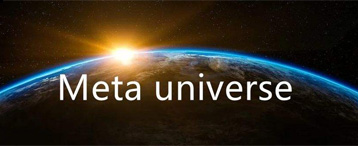-
Will the Development of NFT Stop Here?
 linkweb3
linkweb3 2023-01-04
2023-01-04 3578
3578 NFT
NFT
-
Summary:NFT is going to bring a lot of opportunities, NFT market is expanding nowadays as various NFT applications emerging. With traceability, NFT cannot be tampered with, so the ownership is ensured. However, some problems still exist in the NFT market.
If you interviewed people on the street and asked them "what is NFT", what kind of answer would you get?
Is it a boring ape with an outlandish price? Is it Twitter's new personal avatar feature? Is it confusion about cryptocurrencies? Is it some celebrity's name? Or maybe it's the word "bubble"?
In short, NFT is a technology product that has been defined as frivolous, extravagant and irrational products.
With the rapid decline in the market value and popularity of NFT, many question its durability as a technology and a cultural trend. Were they simply speculation destined to disappear as the NFT market bubble burst? After all, it's not clear to the general public what NFT can be used for.
But if you learn more, you'll see that NFT is going to bring a lot of opportunities, and it's happening.
The Value of NFT
Utility isn't really what artistry or NFT is all about today. After all, it is not the standard by which we measure the importance of works such as the physical artworks of Rembrandt or Damien Hirst, the musical works of Mozart or the Beatles, the luxury items such as Fabergé eggs or Birkin bags.
It is true that most NFT artists will not become Rembrandts (Rembrandt Halmansson van Rijn was one of Europe's greatest 17th century painters and the greatest painter in Dutch history), but they could be the next Damien Hirst (the most expensive contemporary artist to sell in Britain).
One important way to explore NFT is to think of it as a new medium for the creation of artwork and collectibles. Over the centuries, technological innovations - from oil painting to electric guitars to photography - have irrevocably changed the way artworks are produced and displayed, and NFT is part of that long history.
Of course, it is also true that NFT will become increasingly practical. For example, NFT can help address key challenges in the traditional art market, such as traceability and royalty payments.
Traceability
Thomas Hoving, former director of the Metropolitan Museum of Art in New York, estimates that about 40 percent of the collections he examined (including many in the museum's own collection) were fakes, forgeries or misidentified. While many question this figure - and even the definition of a forgery - it is clear that the traditional art market does have many problems.
Many of these problems are related to traceability, i.e., the history of an artwork's production and its successive owners. Traceability helps determine the authenticity and value of a work of art.
Without a way to know the provenance, nasty surprises can occur, such as Steven Spielberg's 1989 purchase of a Norman Rockwell painting from a legitimate seller, only to learn later that it was stolen, or an ancient Greek statue bought for $10 million by the Paul Getty Museum, later ruled by the Italian High Court to be an illegally smuggled out of the country.
With NFT, on the other hand, provenance information is recorded on the blockchain and cannot be tampered with. Ownership - at least as determined by the blockchain address - is publicly visible and protected against forgery.
By making bidding and bidder identity transparent, robust provenance information can also help solve some of the other serious problems in the art market, such as money laundering.
Royalties
The world is full of countless stories about artists who lived poor and unappreciated lives and became famous only after their deaths, such as Vincent van Gogh. These stories are a reminder that artists repeatedly lose out in the art market.
In the United States, artists generally do not receive royalties for the sale of their works on the secondary market.
One famous example that must be mentioned here is the painting "Thaw" by the artist Robert Rauschenberg, which was sold at Sotheby's for $85,000 by a collector who had bought it from Rauschenberg for $900. Rauschenberg shouted to the collector, "So I worked my ass off to make you this money."
NFT can automatically enforce royalty payments. Perhaps more importantly, though, artists can in principle dictate a range of terms for the future sale of their work.
For example, the artist can decide that her NFT will sell for a maximum of $1,000; or she can exercise a copyright, as in France-that is, one that allows the artist a degree of ongoing control over her work even after it has been sold. In some cases, they even have the right to destroy the work.
While some buyers may object to this level of control by the NFT creator, the transparency of the blockchain system ensures that all participants can make an informed choice.
Problems with the NFT Market
The current NFT market is rife with problems. Unauthorized copying is rampant, as are fraudulent transactions - i.e., artificially generated volumes to stimulate sales.
In addition, the archival integrity of the NFT ecosystem can turn into a ticking time bomb, as much NFT content is stored in paid cloud services, which can disappear if payments lapse.
Another big problem is the intrusion of bots. NFTs are often sold as airdrops, where thousands of NFTs are sold at once. when a very popular airdrop goes ahead, some conspirators often use bots to snap up NFTs and then resell them for a profit.
Setting a limit on the number of users to buy in order to achieve fairness has proven to be difficult to implement in practice.
Happily, though, blockchain systems are evolving to enable people to prove their identity and present a unique image while protecting privacy. Blockchain is working toward a broad concept known as "decentralized identity," which is essentially a privacy-preserving system where users control credentials.
Imagine having a digital version of your driver's license and having the option to present the information online - for example, you could prove you are a resident of California but hide information such as your date of birth.
On top of that, a decentralized identity system would allow the NFT marketplace to enforce purchase limits. A robust identity system could also ensure that people buy NFTs from legitimate creators rather than impostors.
Finally, the NFT marketplace could also contain a "policy engine" that gives creators the ability to shape the lifecycle of their work in rich ways. Creators could set the terms of sale and resale; energize their NFTs; offer discounts and incentives to fans; and cultivate a community of enthusiasts in the NFT world, just as galleries have done in traditional art markets. In addition, a policy engine might also address issues such as "speculative pricing and investment mentality.
Other Values of NFT
Humans are migrating to the web, and more and more people are immersed in digital content and visual experiences called metaverse. Young people are abandoning physical property.
Many technologists believe that NFTs will represent goods in virtual worlds - everything from land to equipment. Whatever form they eventually take, they will shape our experience in the metaverse.
NFT has many other applications, such as for representing real-world commodities. In the future real estate market, an apartment may be sold as an NFT. Mainstream companies such as Nike (NKE), Time magazine and Tiffany (TIF) are also using or distributing NFT, which also provides a richer system for event ticketing experiences.
But make no mistake, this does not mean that all is well with NFT. There is no denying that there are fraudulent sales in the marketplace, artist identity theft, etc. Because of this, the technological tools mentioned above, as well as community-based consumer protection tools, will be very important.
Nevertheless, NFT will continue to evolve in a powerful way. Like it or not, NFTs - or something like that - will be a cultural force that is here to stay.
Disclaimer:As an open information publishing platform, shilian only represents the author's personal views and has nothing to do with shilian. If the article, picture, audio or video contains infringement, violation or other inappropriate remarks, please provide relevant materials and send it to: 2785592653@qq.com.
Hint:The information provided on this site does not represent any investment suggestion. Investment is risky, and you must be cautious when entering the market.
ShilianFan group:Provide the latest hot news, airdrop candy, red envelopes and other benefits, WeChat: rtt4322.
















